I follow Christina Parker on social media, so I looked forward to my trip to Zebulon, Georgia to meet her in person. Christina, her husband Greg and their boys were very welcoming, enthusiastic, and full of information. I had so much fun at their farm that day that I had to keep reminding myself that I was there to produce a video! I learned a lot from them and I left feeling very inspired.
Thirteen years ago, the family moved to their 12-acre farm with plans to live a simpler life, to grow their own food, contribute to their community, and to become more intentional about living sustainably.
Today, Parker Pastures uses solar power, they grow their own food year-round and, along with managing horses, dogs, cats and chickens as well as the garden itself, both Christina and Greg still hold full-time jobs. They also enjoy donating food from the farm to organizations and food-insecure individuals.
The Parkers grow seed starts for local vendors and produce and sell various nutrient-rich fermented products including Kimchi, Sauerkraut, and Hot Pepper Sauces.
They typically sell out of their hot sauce and get requests for more. This helps them plan which peppers they’ll grow in the next season (they grow nearly 100 pepper plants each year). It takes a lot of peppers to make the hot sauce. The peppers are fermented for 2 months along with a few other vegetables. Greg packs a one-gallon jar with peppers to ferment and make five-ounce bottles of sauce. The Parkers already have a waiting list for some of their sauces.
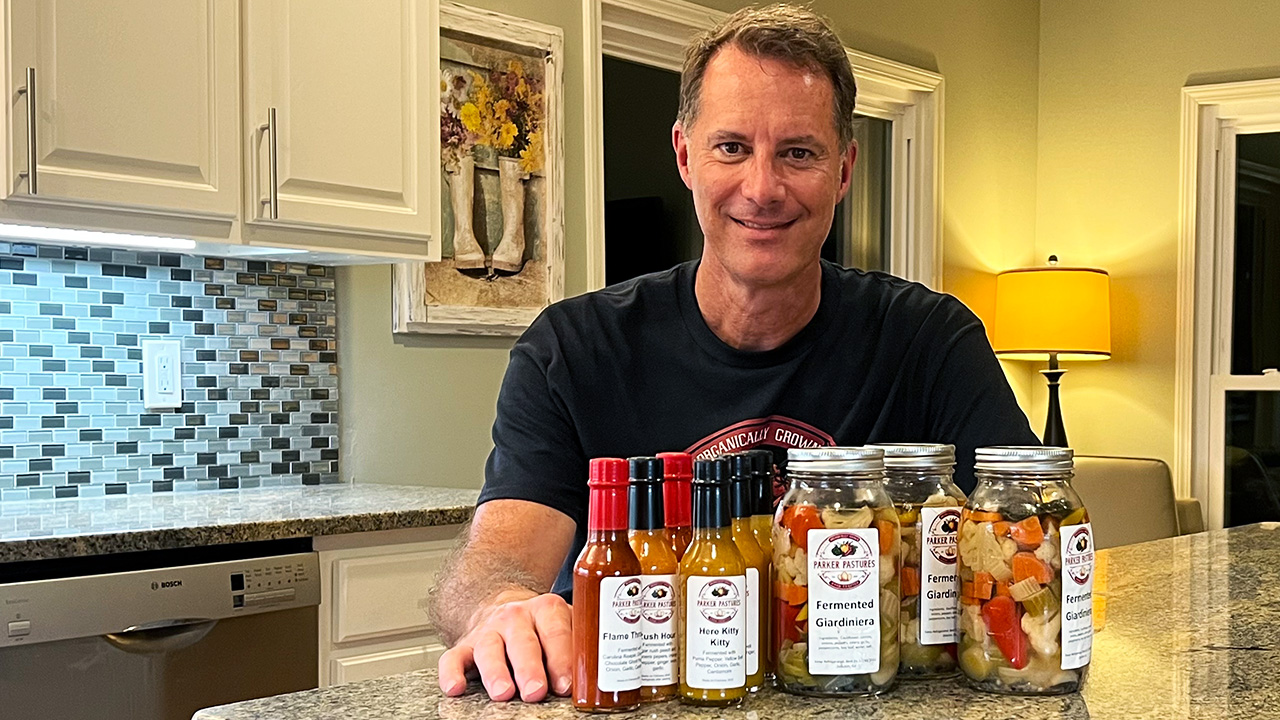
Greg is a pepper enthusiast and makes about 10 different flavors of hot sauce.
Christina teaches and provides one-on-one consulting services on sustainable practices and permaculture, including seed starting, growing and maintaining gardens, harvesting, and preserving food. She also shares her experience and excellent growing tips through TikTok, Instagram, and Facebook.
Parker Pastures offers 6-week sessions as well as follow-on courses. They also provide tours for homeschool, corporate, and local community groups.
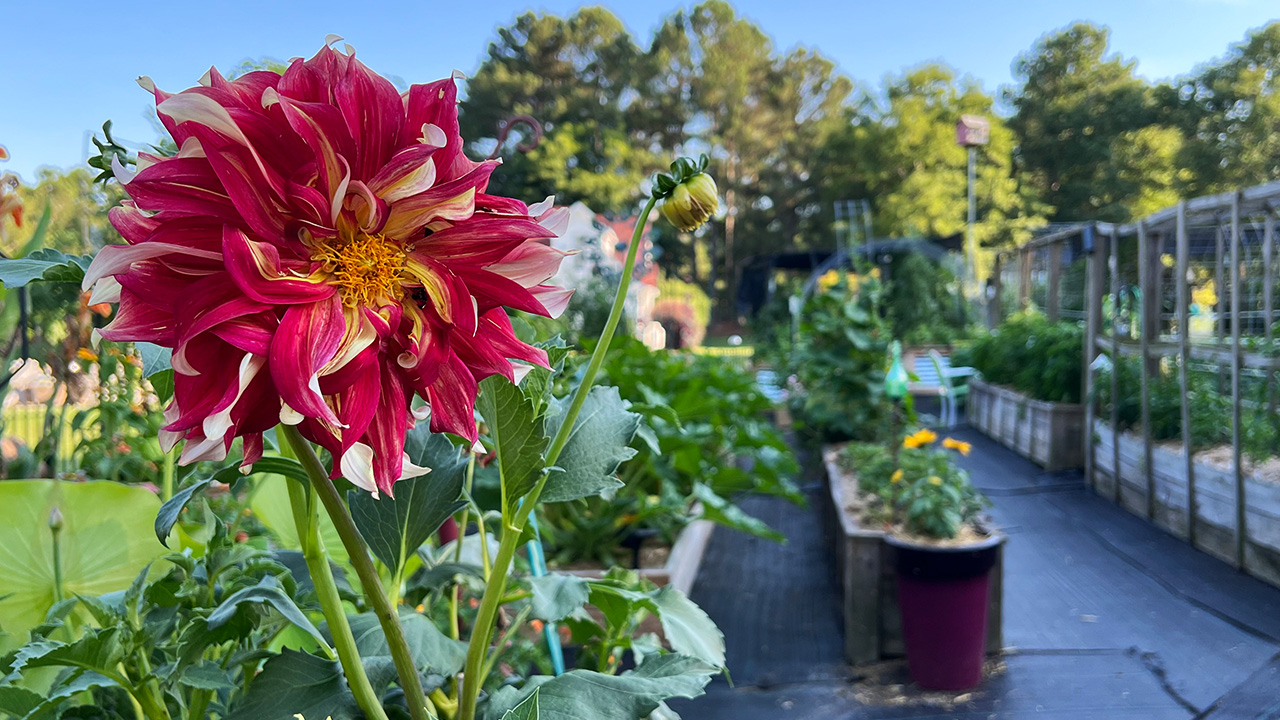
The Parker’s garden is beautiful with gorgeous flowers and pollinating plants tucked among the vegetable plants.
Greg does the heavy lifting and builds and fills their very attractive and productive raised beds.
Their garden is beautiful with gorgeous flowers and pollinating plants tucked among the vegetables. When I visited, the squash and peppers were coming in and the heirloom tomatoes were as plentiful, colorful, and eye-catching as the flowers.
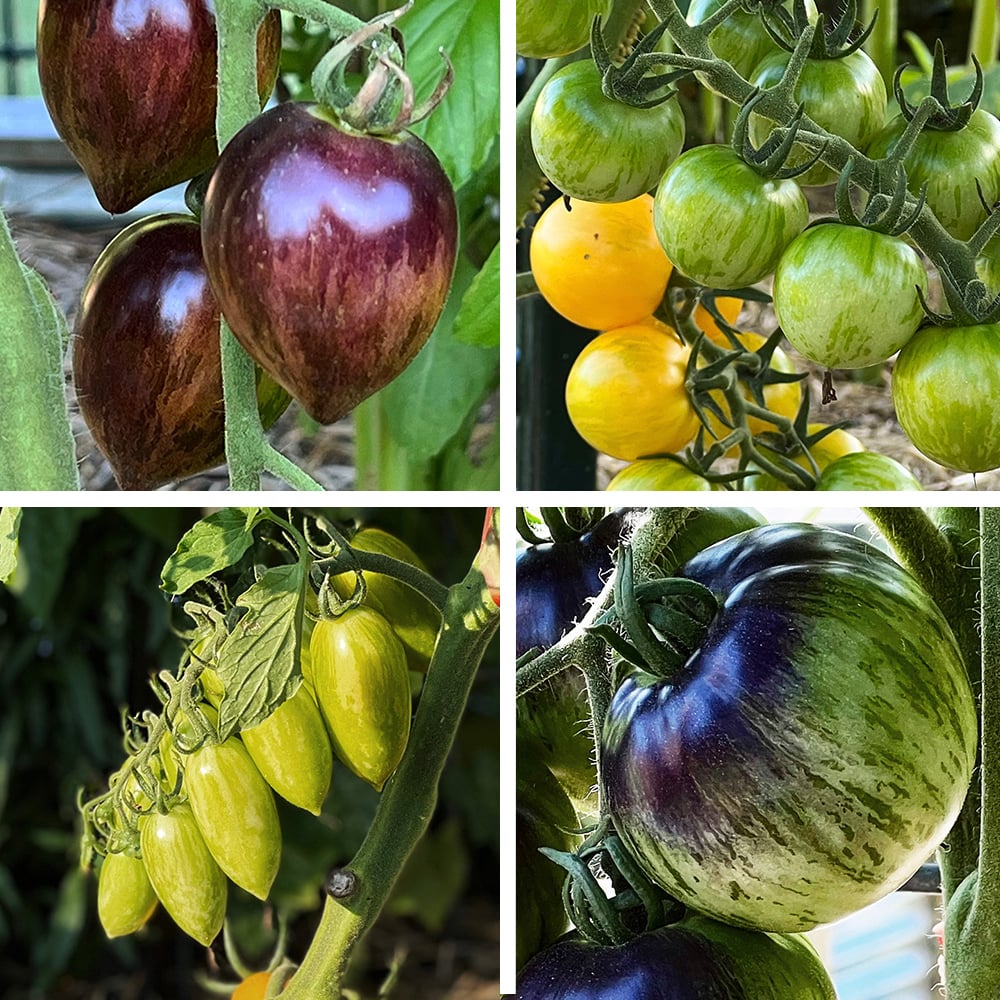
Some of the heirloom tomatoes they grow (starting top left, going clockwise): Black Strawberry, Sunrise Bumble Bee (cherry tomato), Sart Roloise, Pink Tiger (plum tomato).
Passionate for Permaculture
The couple is committed to sustainable practices and passionate about permaculture, protecting the environment, and growing healthy food.
Christina describes permaculture as being very respectful of the earth and of our resources. She says, “It’s a sustainability mindset - working with mother nature instead of against her”.
There are many ways to practice Permaculture, beginning with consideration of the direction of the wind, the sunrise and sunset, water shed, and topography of the land.
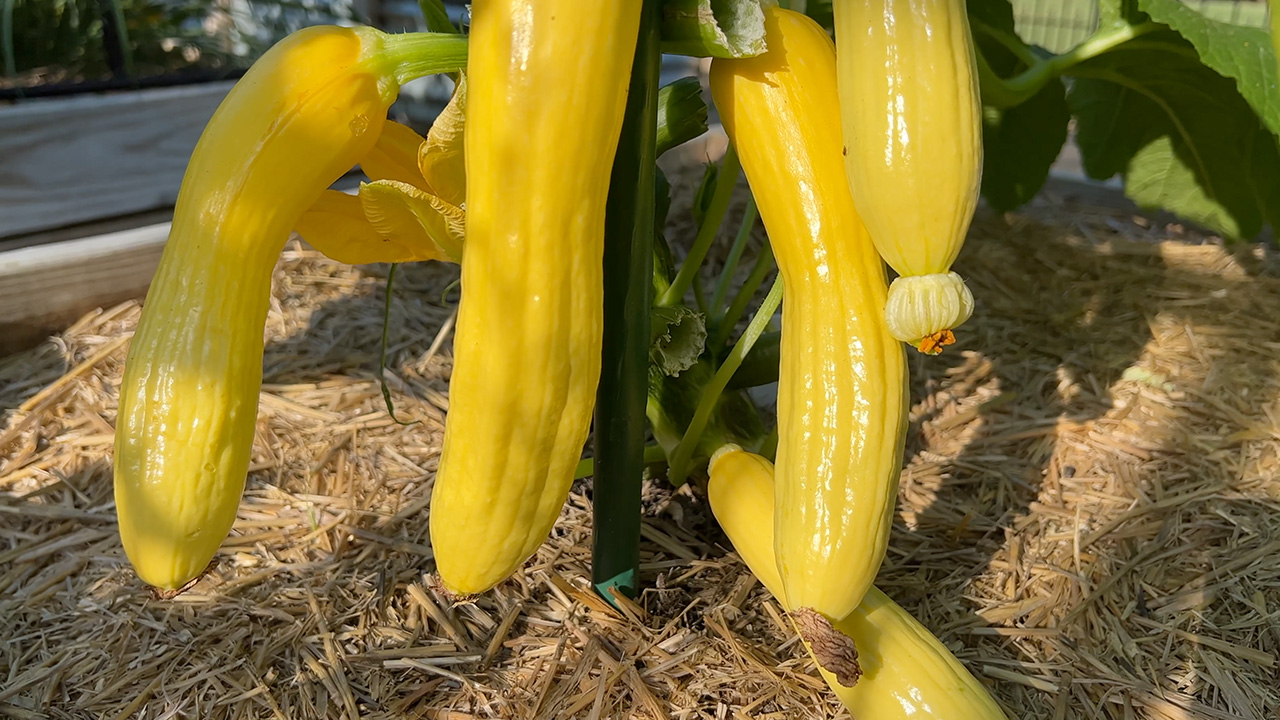
This yellow squash is called 'Slick Pik'
The Parkers Use Soil³ in Hugelkultur Beds
One of the ways that Parker Pastures practices permaculture is through Hugelkultur, a centuries-old method of building garden beds with logs and natural debris. This organic matter starts a composting process which warms the soil, while at the same time, makes use of landscape debris that might otherwise be sent to a landfill or burned. The Parkers gather logs, branches, leaves and grass from their property to create the base layer in their tall raised beds. They then top this base layer with Soil³.
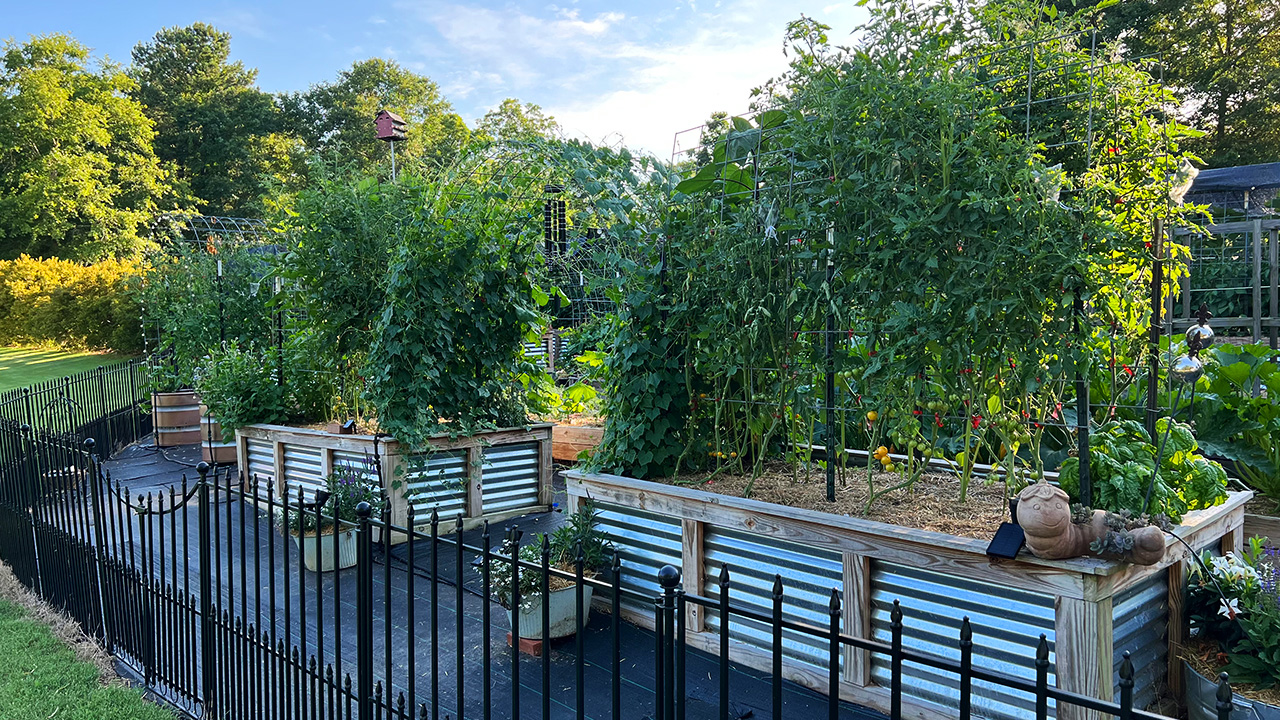
Greg does the heavy lifting and builds and fills their impressive, high-yielding raised beds.
The base layer of organic material gradually decomposes into a wonderful spongey, water-retaining soil matter that holds just the right amount of moisture, helping to reduce watering requirements. The rotting wood is a host for beneficial fungi, bacteria, insects, worms, and microbial growth that supports a living soil that provides nutrients to continuously feed plants.
“Off-the-Charts Production with Soil³”
The Parkers discovered Soil³ as they searched for a reliable, consistent organic-approved soil. (The compost from Soil³ is OMRI Listed)
Christina described that their raised bed design combined with Soil³ and Hugelkultur creates an ideal environment for growing healthier plants and more food. The logs and organic debris below help to retain water, balance the soil temperature and continuously feed and support the living soil.
Since the Parkers began topping their Hugelkultur beds with Soil³, their plants are so healthy that they experience fewer problems with disease and pests. Their production has been “off the charts,” so much so that Christina said their accountant told them they could no longer be considered a hobby farm because they're a real business! (Be sure to watch the video at the top of this story to see how Christina delivers that punch line.)
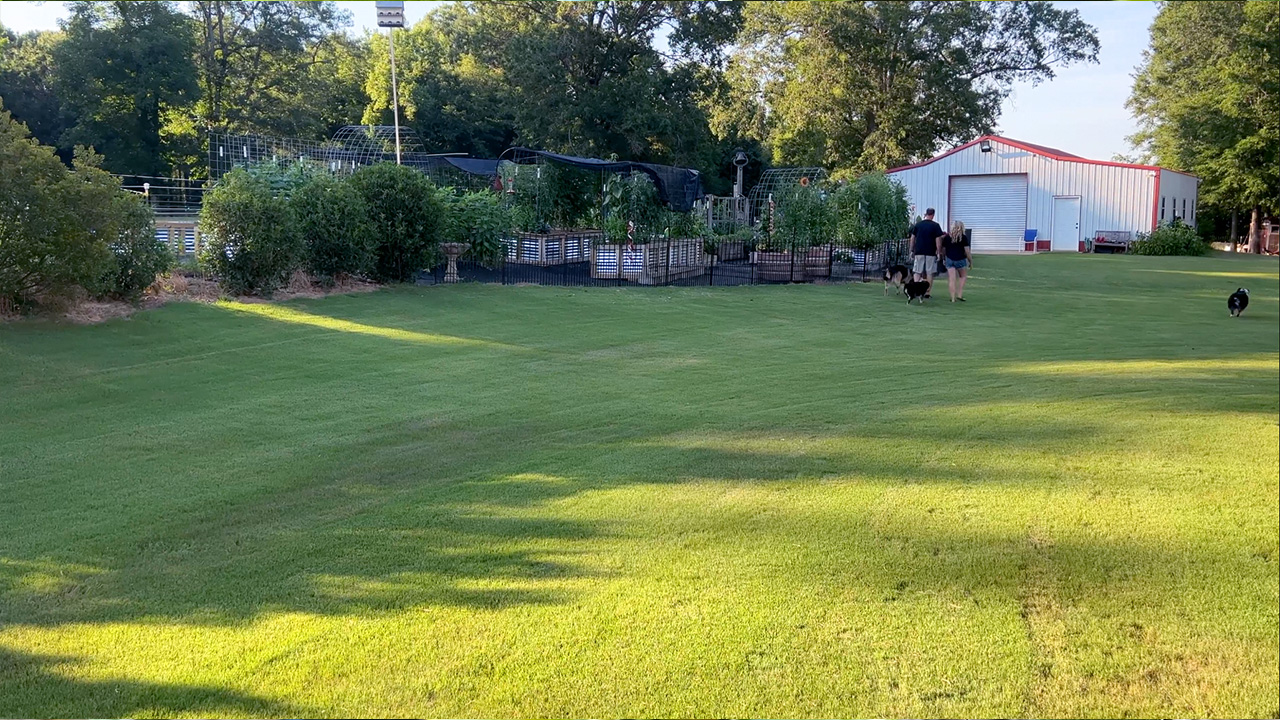
The Parker Pastures farm is located on 12-acres in Zebulon, Georgia
Editor's Note: The Parkers farm using the straight compost from Soil³, however, they systematically perform bioassays using beans to check for herbicide carryover before they begin planting other crops. We recommend you do the same in any compost you use! Because of the threat of herbicide carryover in all composts, we created Veggie Mix. Veggie Mix is formulated with bark and charcoal to improve drainage, protect plants, and save time. Plus, we run our own bioassays on it.
Photos and video by Laurie Wakefield.
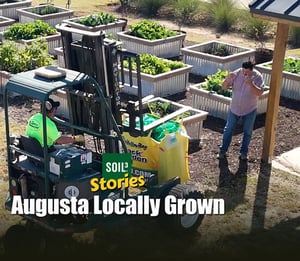
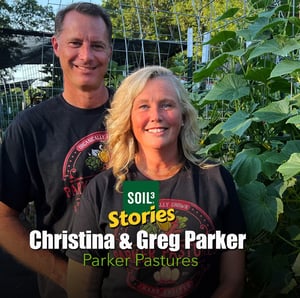


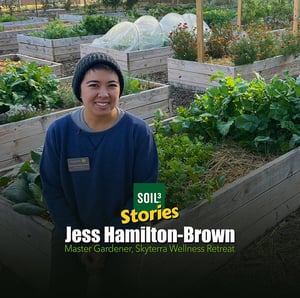
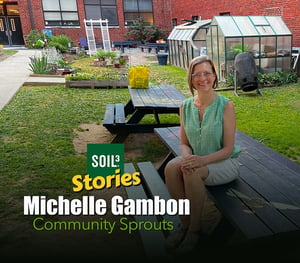

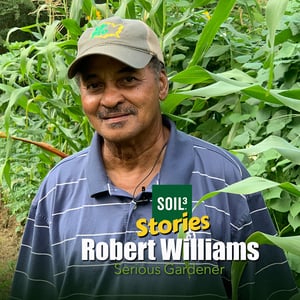
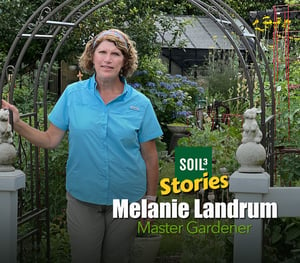
Did this help you out? Have any questions for clarity? Leave a comment below!